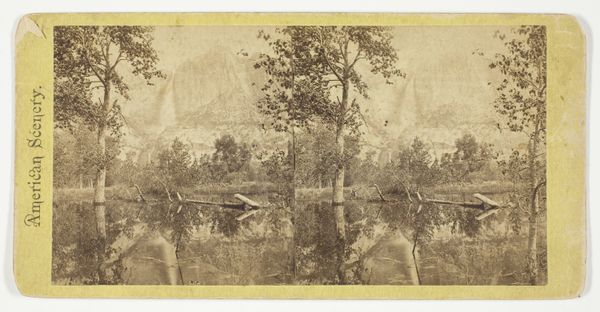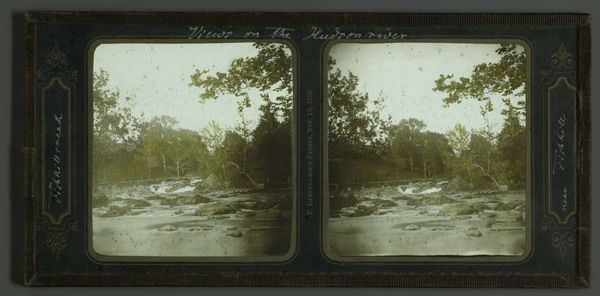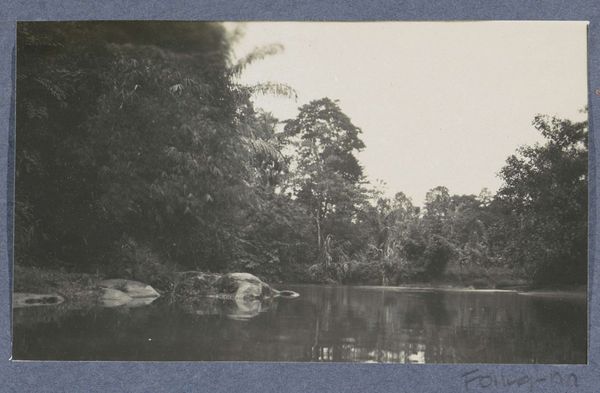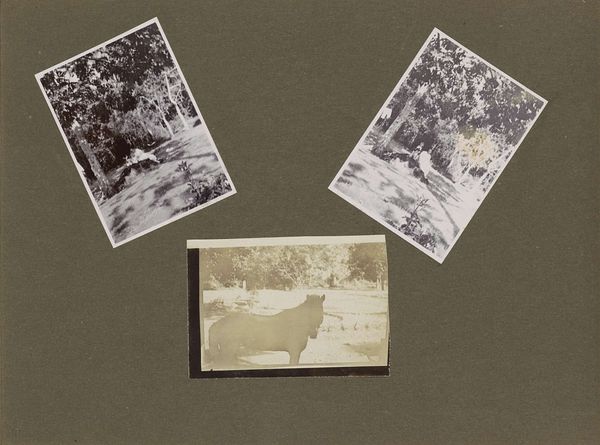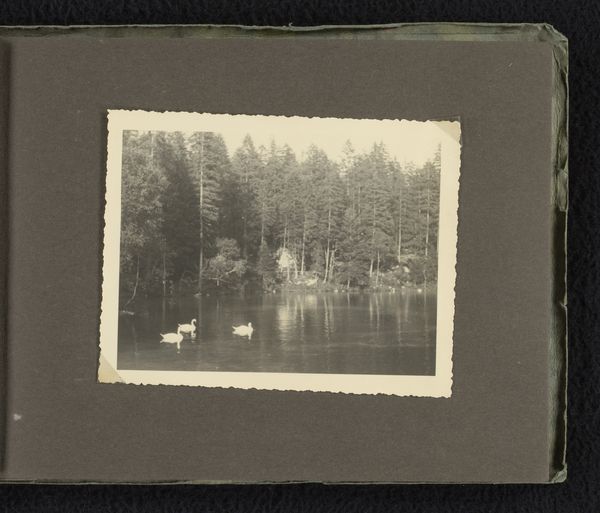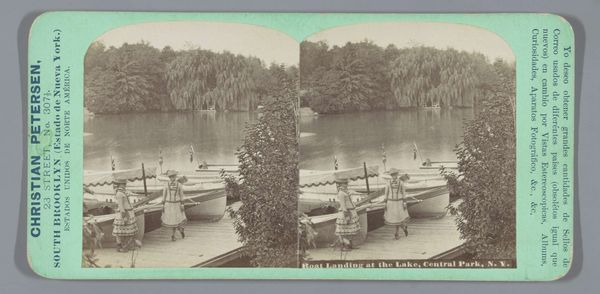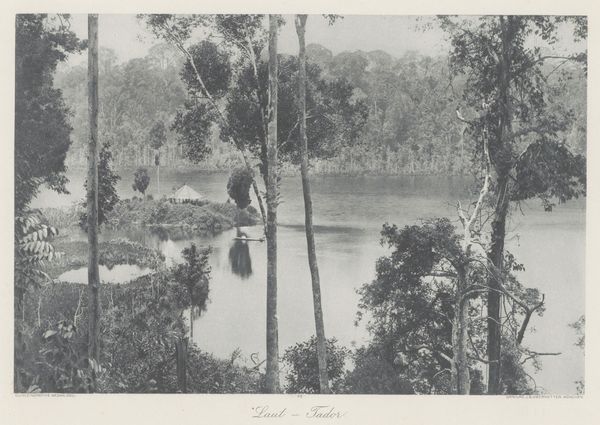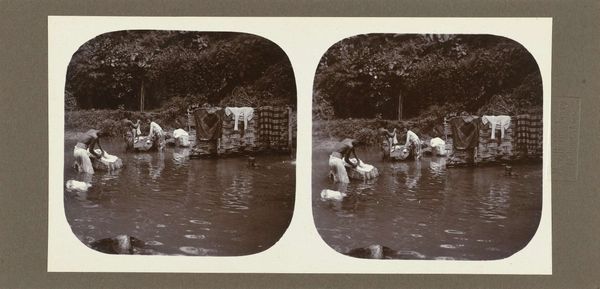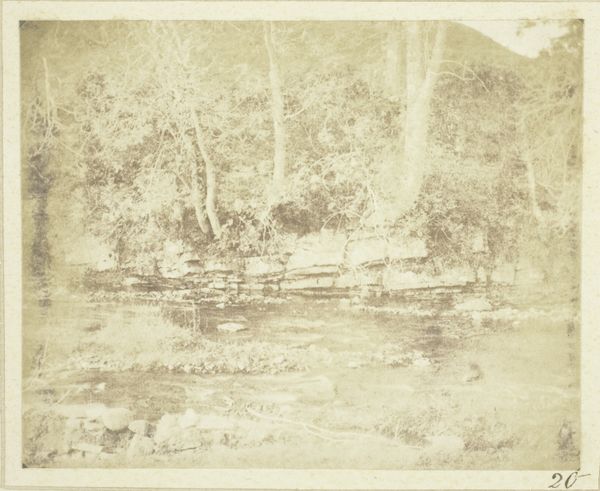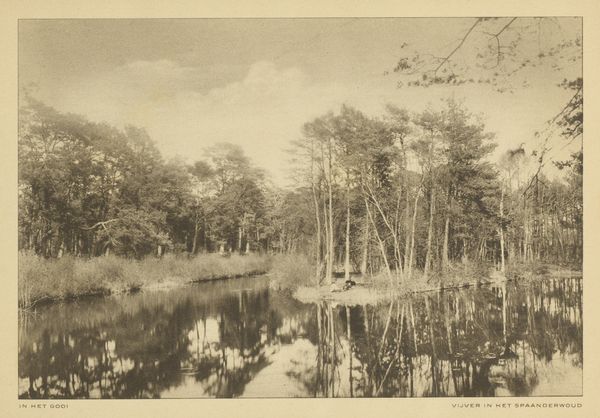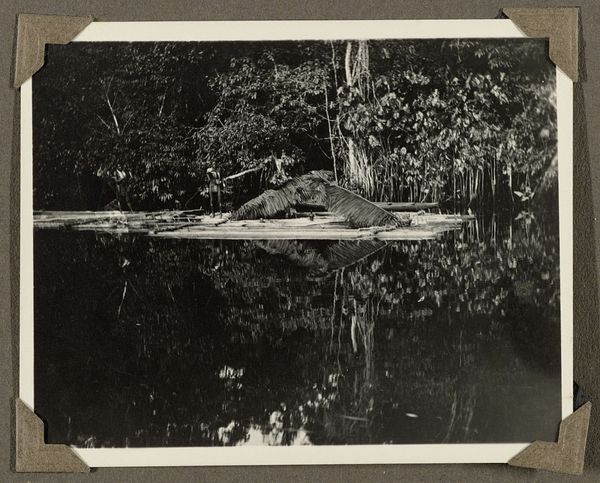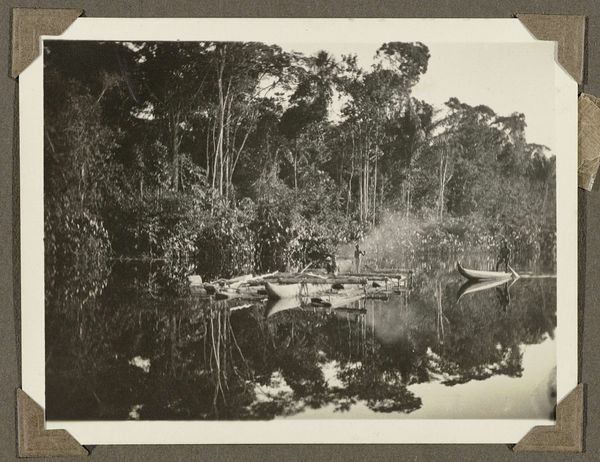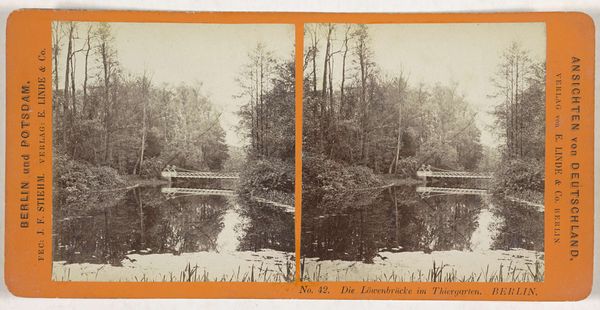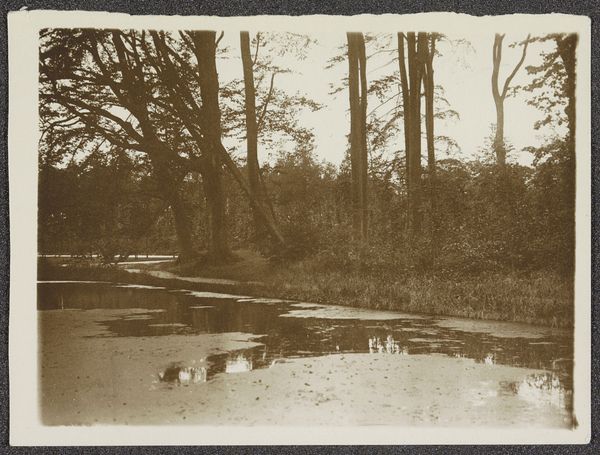
photography
#
still-life-photography
#
pictorialism
#
landscape
#
photography
#
park
Dimensions: height 88 mm, width 185 mm
Copyright: Rijks Museum: Open Domain
Editor: So, this photograph, "Vogels in het Vondelpark, Amsterdam," was taken sometime between 1909 and 1922, although the artist is unknown. The subject is a landscape with birds in what appears to be a park, but something about the sepia tone and the soft focus gives it an old-world feel. How do you interpret this work in its historical context? Curator: It's interesting you pick up on the pictorial style. That softness was very deliberate. This photograph comes at a time when photography was fighting for legitimacy as art. Pictorialism, with its focus on aesthetic effect rather than purely documentary precision, aimed to elevate photography. Considering the "Vondelpark" aspect, how might public spaces factor into that quest for artistic recognition? Editor: Well, I suppose portraying something like a park, a place for leisure and public gathering, suggests photography could capture and represent everyday life, not just formal portraits. Curator: Exactly. The choice of the Vondelpark, a well-known public space in Amsterdam, also indicates a social and cultural intent. How does this portrayal contrast with, say, a scientific photograph taken during the same period? Editor: The scientific photograph would probably prioritize clarity and detail. Here, the focus seems to be on creating a mood, a scene… Almost romanticizing a place of leisure. Curator: Precisely! It’s playing with established artistic tropes in painting and applying them to the relatively new medium of photography. So, what’s your feeling about the inclusion of the birds? How do they shift your reading of the image? Editor: They add a dynamic element. It’s not just a static scene; there's a sense of life and activity. I didn’t initially see them as symbolically charged, but thinking about the time, perhaps they're about the freedoms of the public space? Curator: That’s a very insightful interpretation. Images of nature, especially in urban environments, often carry political and social weight. We yearn for some freedoms that animals inherently embody. It might represent that connection with nature for city dwellers in a rapidly modernizing world. Editor: I see. I had viewed it as a simple landscape, but understanding its historical moment gives it much more complexity and intent. Curator: Indeed. Context shapes our interpretation, providing a deeper engagement with the artist's vision, or in this case, perhaps a glimpse into the intentions of the photography collective behind this pictorialist image.
Comments
No comments
Be the first to comment and join the conversation on the ultimate creative platform.
